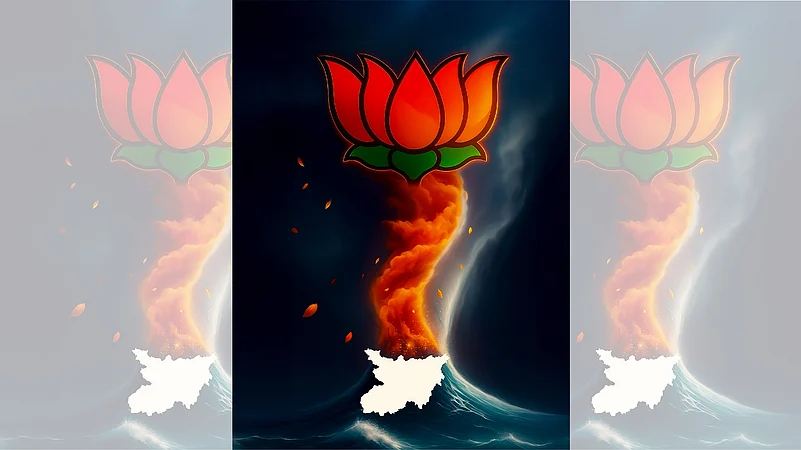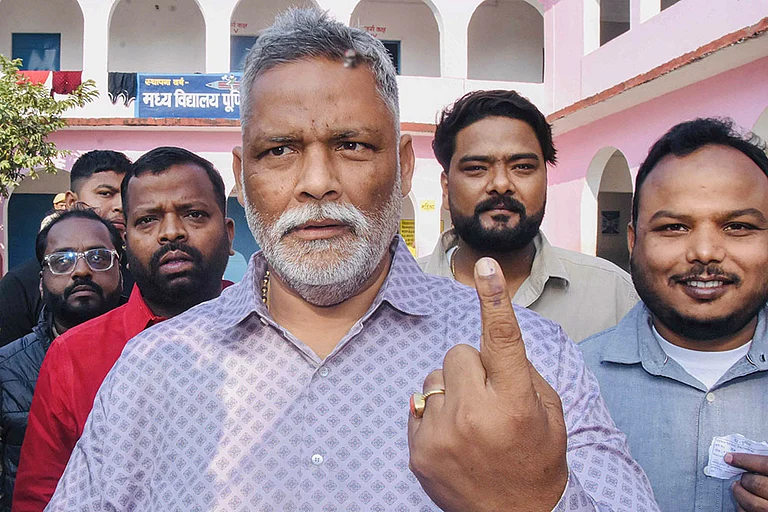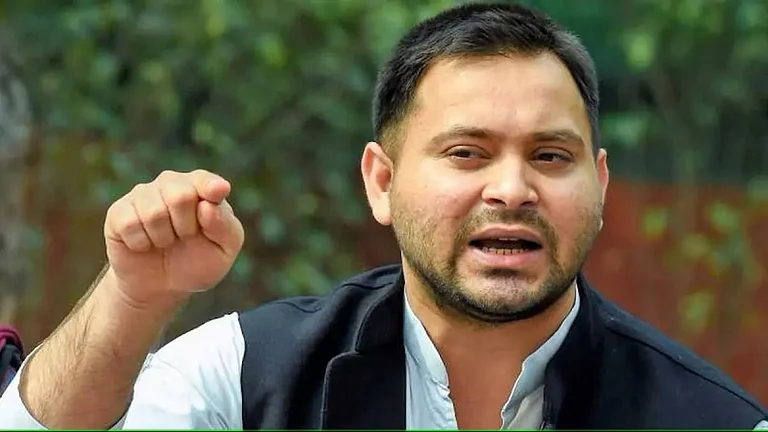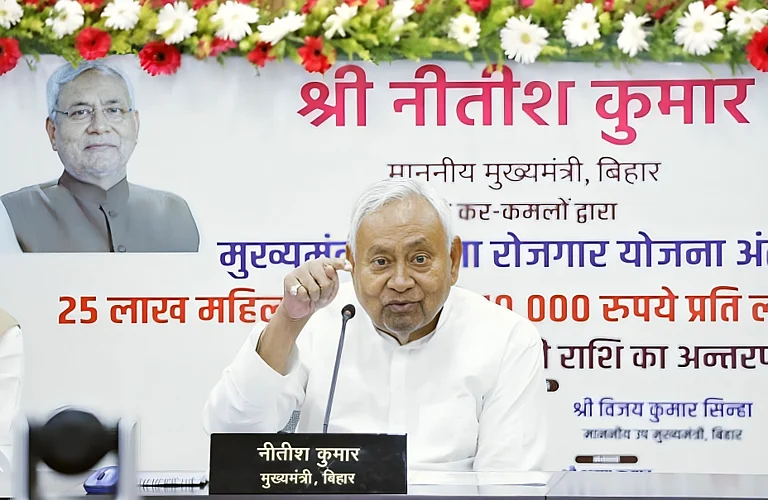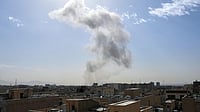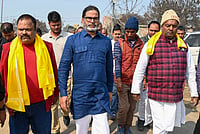
BJP is now the largest party in Bihar and may form the government independently.
JD(U) improved its tally but still cannot form a government without the BJP or align with the Opposition.
Tensions within the NDA are growing as the BJP may no longer need Nitish, potentially ending their partnership.
The BJP-led NDA alliance has swept the Bihar elections, with expectations of winning more than 200 seats. Yet the story within the story is the BJP’s extraordinary rise: the party has emerged as the single largest force in the state, prompting many to speculate that the BJP may, for the first time, be in a position to form the government on its own.
What is unfolding in Bihar is more than just another election outcome — it may be the most consequential shift in the state’s coalition politics in two decades.
With the simple majority mark at 122, the BJP’s tally — combined with the support of smaller allies — seems close enough to make that possibility real.
According to Nirnimesh Kumar, Patna-based editor of First Draft, the alliance may have been intact during the campaign, but the post-result dynamics could look very different.
“Look, the final figures might vary slightly, but it is simple math. Why would the BJP need Nitish Kumar when it is closest to 122 seats, the figure required for a simple majority, and can form the government on its own?” Kumar said.
He added that the BJP is likely to secure “95-plus seats,” and with the backing of Chirag Paswan’s party, alongside Upendra Kushwaha’s and Jitan Ram Manjhi’s parties, the coalition of BJP-led forces could comfortably cross the majority mark.
Ironically, the BJP’s spectacular showing would not have been possible without Nitish Kumar’s presence.
“The BJP will be close to the historically unprecedented number of 100 only because of Nitish Kumar’s face. The irony is that after doing so well with Nitish Kumar’s help, the BJP won’t need him,” Kumar said.
Aneesh Ankur, a Patna-based political observer, noted that from the early trends, it was clear the election had morphed into a contest within the NDA itself.
“Even though the Bihar election was supposed to be a battle between the NDA and the Mahagathbandhan, the early leads showed that the real fight was between the JD(U) and the BJP for the single-largest party position. Ultimately, the BJP won that fight,” Ankur said.
He also highlighted the simmering tension between the two allies. The BJP’s refusal to declare Nitish Kumar as the NDA’s chief ministerial candidate — despite his record of steering the alliance to multiple victories — was a major signal. Even Prime Minister Narendra Modi’s praise of Nitish as “Sushasan Babu” did not translate into an official endorsement.
Ankur noted that this could explain why Nitish Kumar did not appear with the Prime Minister even once during the campaign — a break from long-standing political practice.
“Anyone who follows Bihar politics knows that all is not well between the two partners. Nitish was not happy with the BJP. Otherwise, have you ever heard of a Chief Minister skipping every single rally of the Prime Minister?” he said.
Difficult for Nitish to Execute His Last “Palti”
Nitish Kumar’s JD(U) has performed remarkably well, almost doubling its tally from 43 seats in 2020 to 84 in this election. Yet the irony of the moment is that even this impressive resurgence does not give him the leverage to reclaim power without the BJP.
With the NDA sweeping the state, the Opposition simply does not have the numbers to accommodate a Nitish-led coalition, even if he were inclined to switch sides.
A possible scenario — if the BJP forms the government on its own and denies Nitish Kumar the chief ministership — is that Nitish could attempt one final “Palti” (political somersault) by joining the Opposition bloc. But arithmetic, not ambition, will decide his future. Without the support of Chirag Paswan’s LJP and other smaller NDA allies, a JD(U)–Mahagathbandhan combination would still fall short of the majority mark. And persuading these NDA partners to revolt alongside him appears unlikely at this moment of BJP dominance.
For the first time, the BJP stands on the cusp of ending its long, uneasy reliance on Nitish Kumar, the very leader who helped it cement its presence in Bihar. If the numbers hold and the BJP forms the government independently, it will redraw the balance of power within the NDA and potentially mark the end of Nitish’s era-defining role as kingmaker. For Bihar, this could be the beginning of a new political landscape; for Nitish Kumar, it may well be the end of the road for his legendary political acrobatics.







